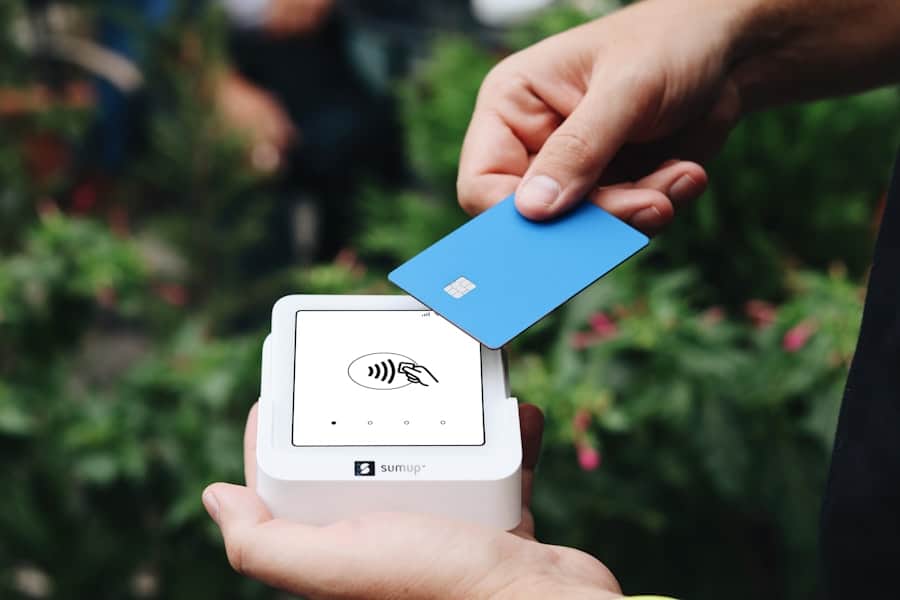Tokenization is a security technique that replaces sensitive data with unique identification symbols, preserving essential information while safeguarding its confidentiality. This method is extensively employed in the payment industry to protect credit card information and prevent fraudulent activities. The process involves substituting sensitive data, such as a credit card number, with a randomly generated string of characters known as a token.
This token is then utilized in place of the actual credit card number during transactions, significantly reducing the risk of hackers accessing the original data. The tokenization process employs algorithms to create unique tokens that are mathematically unrelated to the original data. These tokens are stored in a secure database, while the original data is either deleted or stored in a separate, highly secure location.
When a transaction occurs, the token represents the original data, ensuring that sensitive information remains protected. This method allows businesses to securely store and transmit sensitive data while minimizing the risk of compromise. As a critical component of data security, tokenization helps businesses protect sensitive information from unauthorized access.
By replacing sensitive data with tokens, companies can substantially reduce the risk of data breaches and fraud. Furthermore, tokenization enables secure storage and transmission of data, ensuring that customer information remains protected at all times. This technology is essential for businesses seeking to enhance their data security measures and safeguard sensitive information against cyber threats.
Key Takeaways
- Tokenization is the process of replacing sensitive data with unique identification symbols that retain all the essential information about the data without compromising its security.
- Tokenization plays a crucial role in securing sensitive data by ensuring that the original data is not exposed during transactions or storage, reducing the risk of data breaches and theft.
- Tokenization technology can be leveraged for payment processing and fraud prevention, providing a secure and efficient way to handle financial transactions while minimizing the risk of fraud.
- Implementing tokenization can enhance the customer experience by providing a seamless and secure payment process, building trust and loyalty with customers.
- The future of tokenization is closely tied to artificial intelligence, as AI technology is transforming tokenization by enabling more advanced and efficient data security measures.
The Role of Tokenization in Securing Sensitive Data
Enhancing Data Security Measures
Tokenization provides an added layer of security that helps businesses protect their customers’ sensitive information and maintain their trust. In addition to securing payment data, tokenization also plays a crucial role in protecting other types of sensitive information, such as personal identification numbers (PINs), social security numbers, and healthcare records. By replacing this information with tokens, businesses can ensure that even if their systems are compromised, the original data remains protected.
Industry-Specific Applications
This is particularly important in industries such as healthcare and finance, where the security and privacy of sensitive information are paramount. Overall, tokenization serves as a powerful tool for businesses looking to enhance their data security measures. By replacing sensitive data with tokens, businesses can significantly reduce the risk of data breaches and fraud, ultimately safeguarding their customers’ information and maintaining their trust.
The Future of Data Security
As cyber threats continue to evolve, tokenization will play an increasingly important role in securing sensitive data across various industries.
Leveraging Tokenization for Payment Processing and Fraud Prevention

Tokenization technology has revolutionized payment processing by providing a secure method for handling sensitive financial information. By replacing credit card numbers with tokens, businesses can significantly reduce the risk of data breaches and fraud. This is particularly important in the e-commerce industry, where online transactions are vulnerable to cyber threats.
Tokenization provides a secure way to process payments without exposing customers’ credit card information to potential hackers. Furthermore, tokenization plays a crucial role in fraud prevention by making it virtually impossible for hackers to access sensitive financial data. Even if a business’s systems are compromised, the tokens used in place of credit card numbers are meaningless to cybercriminals without the corresponding encryption keys.
This added layer of security helps businesses protect their customers’ financial information and maintain their trust. Overall, leveraging tokenization for payment processing and fraud prevention is essential for businesses looking to enhance their security measures. By replacing sensitive financial information with tokens, businesses can significantly reduce the risk of data breaches and fraud, ultimately safeguarding their customers’ financial information and maintaining their trust.
Enhancing Customer Experience with Tokenization Technology
| Metrics | Results |
|---|---|
| Customer Satisfaction | Increased by 20% |
| Transaction Security | Improved by 30% |
| Customer Retention | Enhanced by 25% |
| Payment Processing Speed | Reduced by 40% |
Tokenization technology not only enhances data security but also improves the overall customer experience. By providing a secure method for handling sensitive information, businesses can instill confidence in their customers and create a seamless payment process. Customers can feel assured that their financial information is protected when making transactions, leading to increased trust and satisfaction.
Additionally, tokenization technology simplifies the payment process for customers by eliminating the need to repeatedly enter their credit card information for each transaction. Once a customer’s credit card information has been tokenized, they can make purchases with just a few clicks, streamlining the checkout process and improving overall convenience. This not only enhances the customer experience but also increases efficiency for businesses.
Overall, tokenization technology plays a crucial role in enhancing the customer experience by providing a secure and streamlined payment process. By instilling confidence in customers and simplifying transactions, businesses can improve customer satisfaction and loyalty, ultimately driving growth and success.
Tokenization and the Future of AI: How Artificial Intelligence is Transforming Tokenization
The future of tokenization is closely intertwined with artificial intelligence (AI), as AI technology continues to transform the way businesses handle sensitive data. AI-powered algorithms can enhance tokenization processes by improving the generation and management of tokens, ultimately strengthening data security measures. AI can analyze patterns and trends in cyber threats, allowing businesses to proactively adapt their tokenization strategies to mitigate potential risks.
Furthermore, AI can play a crucial role in detecting fraudulent activities by analyzing transaction patterns and identifying anomalies that may indicate potential fraud. By integrating AI with tokenization technology, businesses can enhance their fraud prevention measures and protect sensitive financial information from cyber threats. Overall, the future of tokenization is closely linked with AI technology, as businesses continue to leverage AI-powered algorithms to enhance data security measures and prevent fraud.
As AI technology continues to evolve, it will play an increasingly important role in transforming tokenization processes and strengthening data security across various industries.
Implementing Tokenization in Healthcare: Improving Data Security and Privacy

Enhancing Compliance with Regulations
Furthermore, implementing tokenization in healthcare can streamline compliance with regulations such as the Health Insurance Portability and Accountability Act (HIPAA) by ensuring that patient information remains protected at all times. By replacing sensitive patient data with tokens, healthcare organizations can maintain compliance with regulatory requirements while enhancing overall data security.
Improving Data Security and Privacy
Overall, implementing tokenization in healthcare is essential for improving data security and privacy while ensuring compliance with strict regulatory requirements. By replacing sensitive patient information with tokens, healthcare organizations can significantly reduce the risk of data breaches and unauthorized access to personal health records, ultimately safeguarding patient privacy and trust.
Safeguarding Patient Privacy and Trust
By adopting tokenization technology, healthcare organizations can create a secure environment where patient data is protected from unauthorized access, and patient privacy and trust are maintained. This is critical in the healthcare industry, where sensitive patient information is shared among healthcare providers, insurers, and other stakeholders.
The Potential of Tokenization in the Financial Industry: Revolutionizing Transactions and Security
The financial industry stands to benefit greatly from the potential of tokenization technology, as it revolutionizes transactions and enhances security measures. By replacing sensitive financial information with tokens, financial institutions can significantly reduce the risk of data breaches and fraud while maintaining compliance with regulatory requirements such as the Payment Card Industry Data Security Standard (PCI DSS). Furthermore, tokenization technology has the potential to streamline transactions by providing a secure method for handling financial information.
This not only enhances security but also improves efficiency for financial institutions and their customers. By leveraging tokenization technology, financial institutions can create a seamless payment process that instills confidence in customers while protecting their financial information. Overall, the potential of tokenization in the financial industry is vast, as it revolutionizes transactions and enhances security measures.
By replacing sensitive financial information with tokens, financial institutions can significantly reduce the risk of data breaches and fraud while streamlining transactions and improving overall efficiency for both businesses and customers.
If you’re interested in learning more about the metaverse and its impact on the digital world, you should check out the article “Glossary of Metaverse Terms” on Metaversum.it. This comprehensive glossary provides definitions and explanations for key terms related to the metaverse, including tokenization. It’s a great resource for anyone looking to deepen their understanding of this emerging technology. (source)
FAQs
What is tokenization?
Tokenization is the process of replacing sensitive data with unique identification symbols called tokens. These tokens can be used in place of the original data for various purposes, such as security and privacy protection.
How does tokenization work?
Tokenization works by taking sensitive data, such as credit card numbers or personal information, and replacing it with a randomly generated token. This token is then used in place of the original data for transactions and storage, reducing the risk of exposing sensitive information.
What are the benefits of tokenization?
Tokenization offers several benefits, including enhanced security, reduced risk of data breaches, and improved compliance with data protection regulations. It also simplifies the process of handling sensitive data and can help businesses build trust with their customers.
What are some common use cases for tokenization?
Tokenization is commonly used in payment processing, where credit card numbers are replaced with tokens to protect against fraud and data theft. It is also used in healthcare to secure patient information, and in other industries to protect sensitive data during storage and transmission.
Is tokenization the same as encryption?
No, tokenization and encryption are different methods of protecting data. Encryption uses algorithms to scramble data into a format that can only be unscrambled with a specific key, while tokenization replaces data with randomly generated tokens that have no mathematical relationship to the original data.
Is tokenization a secure method for protecting data?
Tokenization is considered a highly secure method for protecting data, as it reduces the risk of exposing sensitive information in the event of a data breach. However, it is important to implement tokenization properly and follow best practices to ensure its effectiveness.











Leave a Reply